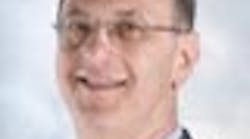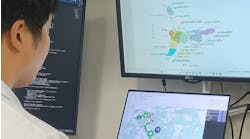In February, the Queen Elizabeth Prize for Engineering Foundation, London, announced the winner of the 2015 award: Robert Langer of the Massachusetts Institute of Technology (MIT), Cambridge, Mass. Langer, a chemical engineer, is getting the honor “for his revolutionary advances and leadership in engineering at the interface with chemistry and medicine.” He will receive the prize from Queen Elizabeth II at Buckingham Palace later this year. The award not only provides the winner international stature unrivalled in engineering but also £1 million (about $1.5 million).
[pullquote]
The Queen Elizabeth Prize for Engineering, which is bestowed biennially, was launched in 2011 as a sort of Nobel Prize for engineers (see “U.K. Launches Global Engineering Award,” http://goo.gl/pes6Ne). It aims to recognize engineers responsible for groundbreaking innovations that benefit humanity. The inaugural prize, awarded in 2013, went to five engineers involved in developing the Internet (“Prestigious Prize Gets First Winners,” http://goo.gl/V39F59). Langer becomes the first chemical engineer to receive the honor.
Langer’s research focuses on bioengineering. He was as one of the first chemical engineers to work in the surgical sector, where he pioneered developments in drug delivery, tissue engineering and nanotechnology. His research laboratory at MIT is the largest academic biomedical engineering lab in the world and has more than 100 researchers. He also has more than 2,000 patents and published articles to his credit.
One of his most recent projects is a microchip-based implant that can store and release precise does of a drug on-demand or at scheduled intervals for as long as 16 years; wireless signals can be used to control the frequency and dosage. Langer co-founded a company, Microchips, to commercialize the development.
“Robert Langer has made an immense contribution to healthcare and to numerous other fields by applying engineering systems thinking to biochemical problems. Not only has he revolutionized drug delivery, but his open-minded approach to innovation and his ability to think ‘outside the box’ have led to great advances in the field of tissue engineering. He is a truly inspiring leader who has attracted brilliant people to these relatively new and exciting areas of research and is extremely involved in the commercial development of his group’s research,” comments Lord Alec Broers, chair of the 15-member international panel of judges and past president of the Royal Academy of Engineering.
“Many young people are interested in engineering but they want to work on problems that improve the human condition. Bob [Langer] is a model of somebody who has done that, and I think that’s a great way to inspire young people about what engineering can do,” adds judge John Hennessy, president of Stanford University.
Langer, who has won numerous other awards worldwide, now is one of 11 Institute Professors at MIT — the highest honor the university confers on faculty. He received a chemical engineering degree from Cornell and then a doctorate in chemical engineering from MIT.



